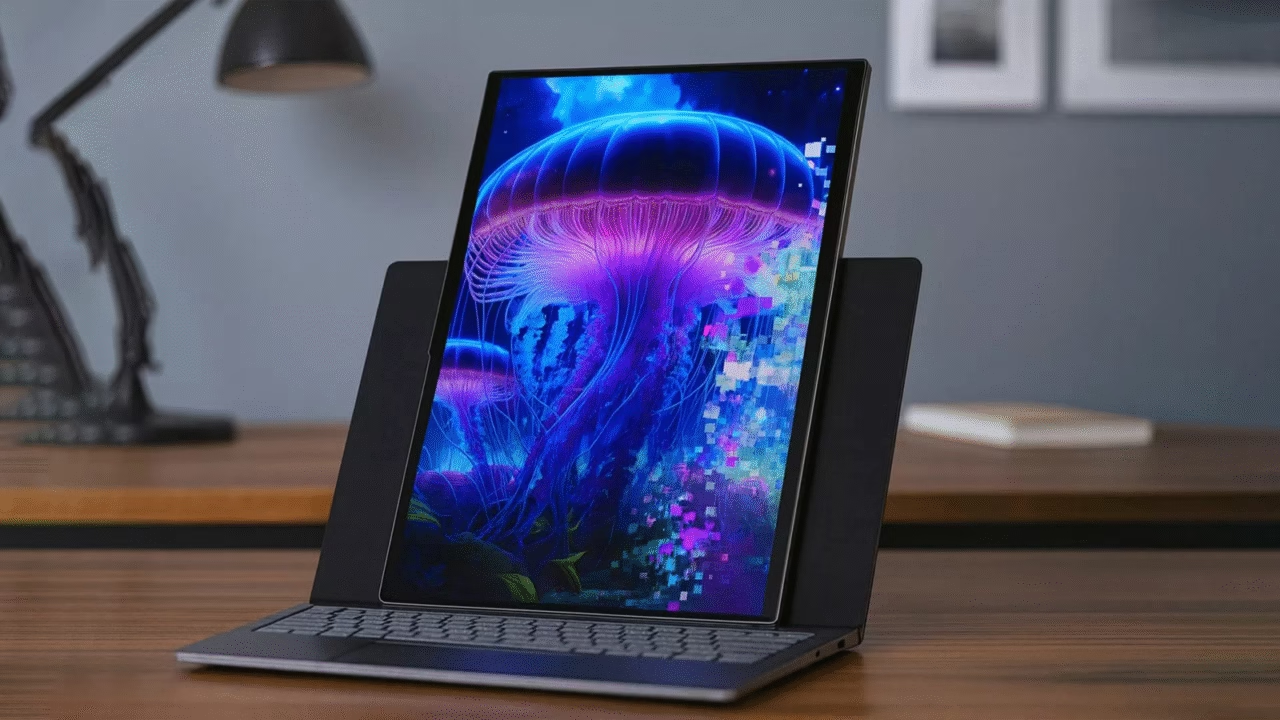The laptop industry has traditionally focused on thinner designs, quicker processors, and more vibrant displays. However, occasionally, a concept emerges that completely redefines our expectations. Introducing Lenovo’s Project Pivo, a prototype laptop with a rotating feature that has recently leaked online, potentially representing one of the most daring designs in recent years.
Based on the leaked images and videos, Project Pivo is far from your typical clamshell laptop. It features a 360-degree rotating hinge system, enabling the screen to rotate independently from the keyboard. Picture a laptop that can effortlessly transition between standard usage, a vertical display mode for reading or coding, and even a tablet-like configuration for presentations. This represents not merely flexibility but a fundamentally new approach to interacting with a laptop.
The concept appears to target content creators, multitaskers, and professionals who seek versatility. For example, envision editing a video timeline in a horizontal orientation, then rotating the screen to a vertical position for portrait photography editing—all on a single device, eliminating the need for multiple monitors. Students, designers, and programmers could also take advantage of the smooth orientation changes, adapting the laptop’s design to fit their workflow instead of the reverse.
However, it’s not solely the hinge that has generated excitement. Reports indicate that Lenovo is equipping Project Pivo with AI-driven software features that modify the interface according to its orientation. This could lead to enhanced window management, automatic app resizing, and potentially even gesture-based navigation in tablet mode. If accurate, this would position the Pivo as not only a hardware advancement but also a software experience optimized for adaptability.
Certainly, leaks raise numerous questions. Durability stands out as a significant concern—can such an ambitious hinge system endure the routine demands of opening, closing, and rotating? Lenovo has a track record of innovating form factors (recall the Yoga series?), suggesting that the company may possess the engineering expertise to achieve this. The battery life and weight remain uncertain, factors that could significantly influence its practicality.
Nevertheless, Project Pivo appears to offer a preview of the future of hybrid computing. As tablets increasingly encroach upon laptop usage and foldable devices transform smartphones, it is logical for laptops to progress beyond traditional clamshell designs. A rotating configuration could effectively connect productivity and creativity in unprecedented ways. Although Lenovo has not officially validated Project Pivo, the mere existence of these leaks is sufficient to generate excitement within the tech community. Should this device reach production, it has the potential to reshape our expectations of laptops over the next decade. One thing is evident: Lenovo is not merely thinking outside the box—it is completely revolutionizing it.

